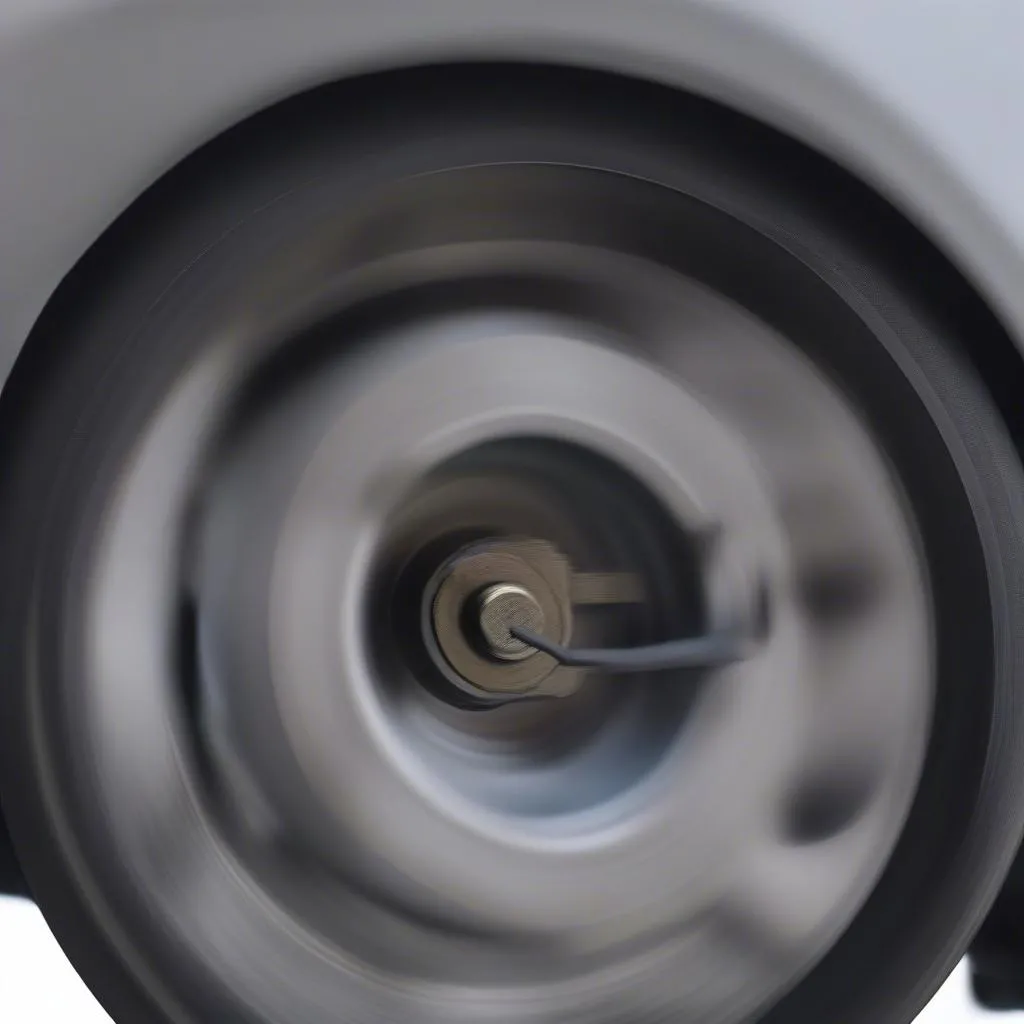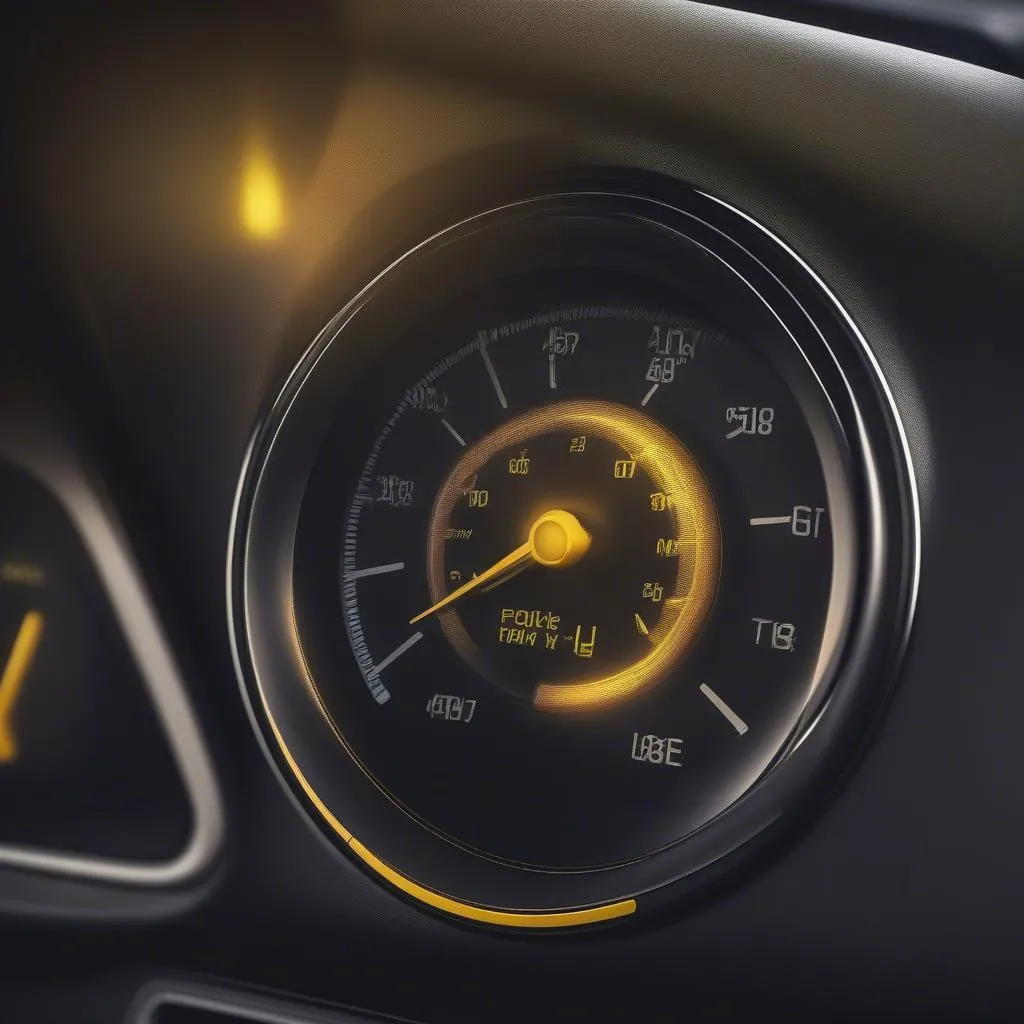Imagine this: you’re driving down the Pacific Coast Highway, California, the sun is setting, and the wind is in your hair. You’re cruising along when suddenly, a yellow light pops up on your dashboard – the dreaded ABS light. Your heart might skip a beat. What does it mean? Is it safe to keep driving? Don’t worry; we’ve got you covered. In this article, we’ll demystify the ABS light, explaining what it means, why it comes on, and what steps you should take.
What Does the ABS Light Mean?
Let’s start with the basics. ABS stands for Anti-lock Braking System, a crucial safety feature in your car. It prevents your wheels from locking up during hard braking, allowing you to maintain steering control and avoid a skid.
“The ABS light is essentially your car’s way of saying, ‘Hey, there might be something wrong with your braking system, and it’s better to get it checked out,” says automotive expert Michael Schmidt, author of “The Complete Guide to Modern Car Systems.”
Why Is My ABS Light On?
Several reasons can trigger the ABS light. Here are some of the most common culprits:
-
Faulty ABS Wheel Speed Sensor: These sensors monitor the speed of each wheel and play a vital role in the ABS system’s functionality. A malfunctioning sensor can trigger the ABS light.
-
Issue with the ABS Module: The ABS module is the brain of the system. If it fails, the entire system can be compromised.
-
Low Brake Fluid: Brake fluid is the lifeblood of your braking system. Low fluid level can indicate a leak and affect your ABS system.
-
Problem with the ABS Pump: The ABS pump helps regulate the brake fluid pressure, and a malfunctioning pump can lead to ABS light illumination.
What Should You Do When the ABS Light Turns On?
First things first: don’t panic! While the ABS light signals a potential issue, it doesn’t necessarily mean your brakes are gone entirely. However, it’s crucial to address the problem as soon as possible.
Here’s what you should do:
-
Drive cautiously: Avoid sudden braking and maintain a safe distance from other vehicles.
-
Check your brake fluid: If you’re comfortable doing so, carefully check your brake fluid level. If it’s low, adding more fluid might temporarily solve the issue, but you’ll still need to get it checked for leaks.
-
Schedule an inspection: The best course of action is to take your car to a trusted mechanic specializing in ABS systems, like those using Dealer Scanner for European Cars, for a proper diagnosis.
 Faulty ABS Wheel Speed Sensor
Faulty ABS Wheel Speed Sensor
Don’t Ignore the Warning Signs
Ignoring the ABS light can lead to more significant problems down the road, potentially compromising your safety and leading to costly repairs.
Remember, a well-maintained car is a safe car. Regular maintenance and prompt attention to warning lights like the ABS light are essential for safe and enjoyable driving experiences, whether you’re cruising down the California coast or navigating the busy streets of New York City.
Frequently Asked Questions About the ABS Light
Here are some common questions car owners often ask about the ABS light:
Can I Still Drive My Car With the ABS Light On?
Technically, yes, you can still drive. However, remember your ABS system might not function correctly, which can be dangerous, especially in slippery conditions.
How Much Does It Cost to Fix an ABS Light Issue?
The repair cost can vary widely depending on the problem’s root cause. A simple sensor replacement might be relatively inexpensive, while an ABS module replacement can be quite costly. It’s always best to get a quote from a trusted mechanic.
Can I Check the ABS System Myself?
While checking the brake fluid level is something you can do yourself, diagnosing the ABS system requires specialized equipment and expertise. It’s best to leave it to the professionals.
How Often Should I Get My ABS System Checked?
It’s a good idea to have your ABS system inspected annually as part of your routine car maintenance.
Keep Rolling Safely: Understanding Your Car’s Warning Signs
Understanding your car’s warning signals is crucial for safe and responsible driving. The ABS light, though potentially alarming, is a valuable indicator that can help you address potential braking system problems before they escalate into dangerous situations. Remember, a little knowledge about your car can go a long way in ensuring a smooth and safe journey, wherever the road may take you.
 ABS Warning Light on Dashboard
ABS Warning Light on Dashboard
Need Help with Your Car’s Diagnostics?
We understand that car troubles can be frustrating. If you need assistance with diagnostics tools or expert advice on your car’s ABS system, don’t hesitate to contact us via WhatsApp at +84767531508. Our team of automotive specialists is available 24/7 to help you get back on the road safely and confidently.